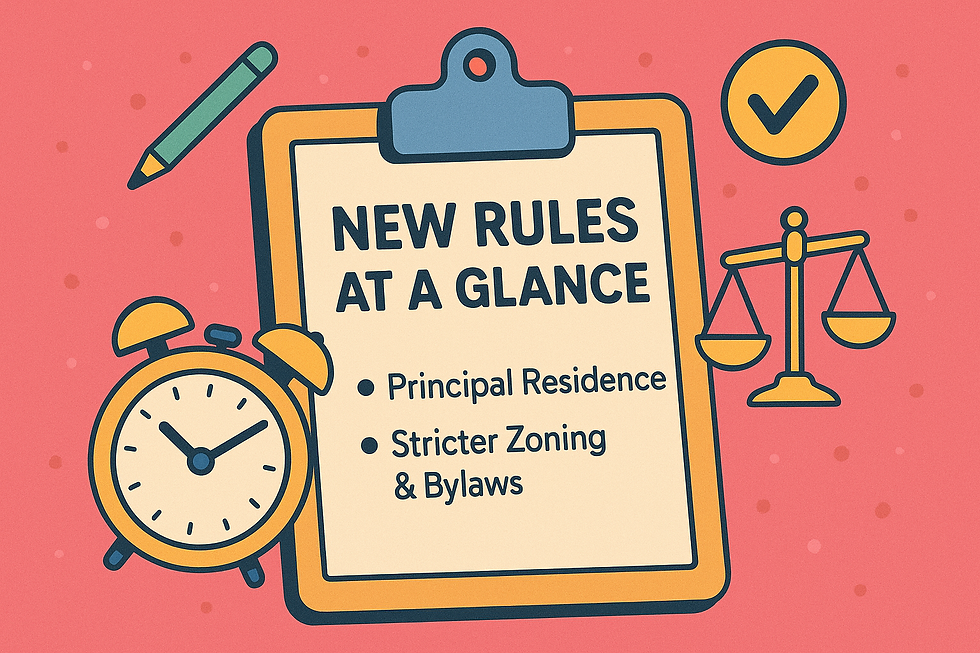Short-Term Rental Regulations in BC: What They Mean for You (and How to Make Them Work in Your Favor)
- TruHost

- Sep 22, 2025
- 2 min read
New Rules at a Glance
In 2024, BC introduced the Short-Term Rental Accommodations Act, designed to free up housing supply and curb the rapid growth of vacation rentals.
The biggest changes include:
❌ Principal Residence Requirement – In many municipalities, you can now only operate a short-term rental (STR) in your primary residence (and in one additional secondary suite or laneway home, if applicable).
🏘️ Stricter Zoning & Bylaws – Cities and towns can set their own rules around where STRs are allowed (e.g., only in tourist or commercial zones).
📝 Mandatory Registration & Licensing – Hosts must display valid business licenses on their listings (platforms like Airbnb now require this).
💸 Higher Fines – Non-compliance can result in fines of up to $3,000 per day.

The Challenges for Property Owners
For many, these rules feel like the end of the STR business model. Property owners who relied on short-term rentals to cover mortgages or generate side income are understandably frustrated.
But here’s the truth: there are still opportunities if you know how to structure your rental strategy.

How to Work Within (and Around) the Regulations
Leverage Principal Residence Rules
If you live in your home, you can still rent out a basement suite, carriage home, or laneway house legally.
Many owners use summers (when they travel) to rent their primary residence — maximizing seasonal income.
Target Zoned Tourist & Resort Areas
Certain zones (like Cultus Lake or resort towns) are explicitly designed for STRs. These properties are gold because they remain exempt from many restrictions.
Shift to Medium-Term Rentals (30+ Days)
Rentals of 30+ days aren’t considered “short-term.” This opens the door to traveling nurses, film crews, remote workers, and students — with less turnover and fewer rules.
Consider Corporate & Furnished Housing
Businesses often need temporary housing for staff relocations or projects. Positioning your property this way can bypass restrictions while commanding premium rates.
Professional Management Makes You Compliant
Companies like TruHost keep up with licensing, bylaws, and market shifts. We help owners stay compliant while squeezing every dollar out of their property.
Turning Regulations Into an Advantage
While many hosts will exit the market due to short-term rental regulations in BC, those who adapt will thrive. Less competition means higher occupancy and stronger nightly rates for compliant properties.
By understanding the rules — and positioning your property smartly — you can actually benefit from the tightening market.

How TruHost Can Help Navigate Short-Term Rental Regulations in BC
At TruHost, we specialize in helping property owners:
Navigate zoning and licensing requirements
Identify properties best suited for STR or mid-term rental strategies
Maximize occupancy through advanced pricing tools
Ensure compliance to avoid costly fines
Bottom line: Regulations don’t have to kill your rental business. With the right guidance, they can actually make your property more profitable.






Comments